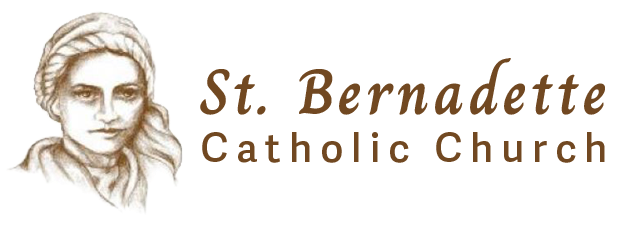Eucharist
If you are homebound and interested in receiving Communion,
please click here or call the Parish Office at 732-721-2772.
The Eucharist is the sacrament by which Catholics partake of the Body and Blood of Jesus Christ and participate in his one sacrifice. This sacrament is also called Holy Communion. The bread and wine used in the Eucharistic rite are, in Catholic faith, transformed in all but appearance into the Body and Blood of Christ, a change that is called transubstantiation. Only a bishop or priest is enabled to be a minister of the Eucharist, acting in the person of Christ himself. Deacons as well as priests are ordinary ministers of Holy Communion,and lay people may be authorized in limited circumstances to act as extraordinary ministers of Holy Communion. The Eucharist is seen as "the source and summit" of Christian living, the high point of God's sanctifying action on the faithful and of their worship of God, the point of contact between them and the liturgy of heaven. So important is it, that participation in the Eucharistic celebration is seen as obligatory on every Sunday and Holy Days of Obligation and is recommended on other days.
Receiving Holy Eucharist (Communion)
For Catholics
As Catholics, we fully participate in the celebration of the Eucharist when we receive Holy Communion. We are encouraged to receive Communion devoutly and frequently. In order to be properly disposed to receive Communion, participants should not be conscious of grave sin and normally should have fasted for one hour. A person who is conscious of grave sin is not to receive the Body and Blood of the Lord without prior sacramental confession except for a grave reason where there is no opportunity for confession. In this case, the person is to be mindful of the obligation to make an act of perfect contrition, including the intention of confessing as soon as possible. A frequent reception of the Sacrament of Penance is encouraged for all.
For our fellow Christians
We welcome our fellow Christians to this celebration of the Eucharist as our brothers and sisters. Because Catholics believe that the celebration of the Eucharist is a sign of the reality of the oneness of faith, life, and worship, members of those churches with whom we are not yet fully united are ordinarily not admitted to Holy Communion. Eucharistic sharing in exceptional circumstances by other Christians requires permission according to the directives of the diocesan bishop and the provisions of canon law. Members of the Orthodox Churches, the Assyrian Church of the East, and the Polish National Catholic Church are urged to respect the discipline of their own Churches. According to Roman Catholic discipline, the Code of Canon Law does not object to the reception of communion by Christians of these Churches.
For those not receiving Holy Communion
All who are not receiving Holy Communion are encouraged to express in their hearts a prayerful desire for unity with the Lord Jesus and with one another.
For non-Christians
We also welcome to this celebration those who do not share our faith in Jesus Christ. While we cannot admit them to Holy Communion, we ask them to offer their prayers for the peace and the unity of the human family.

